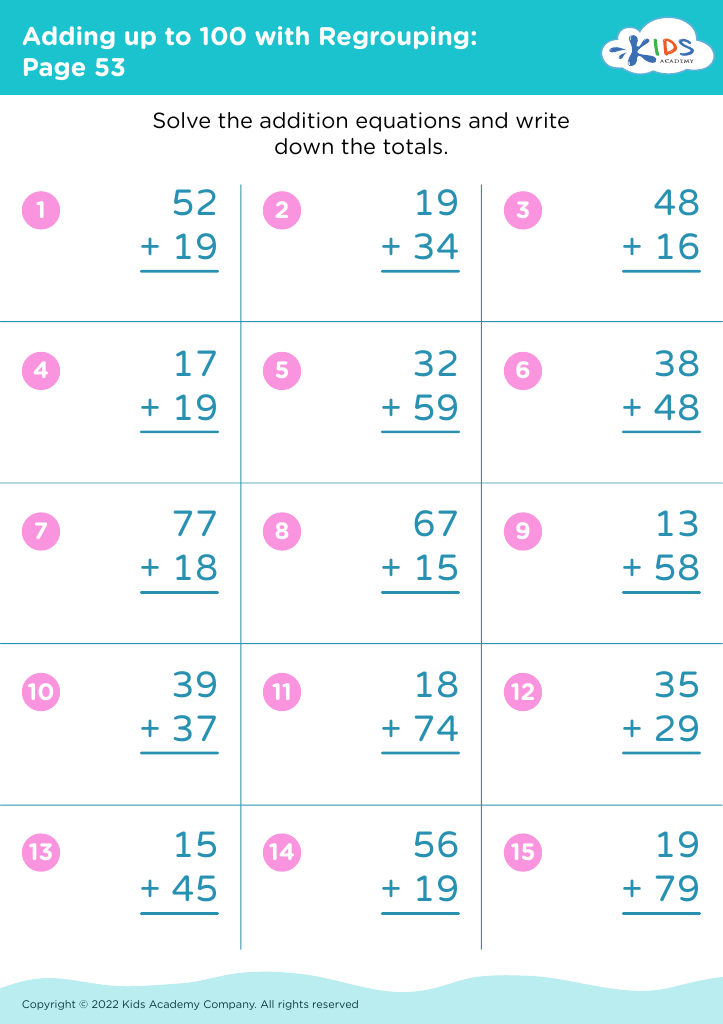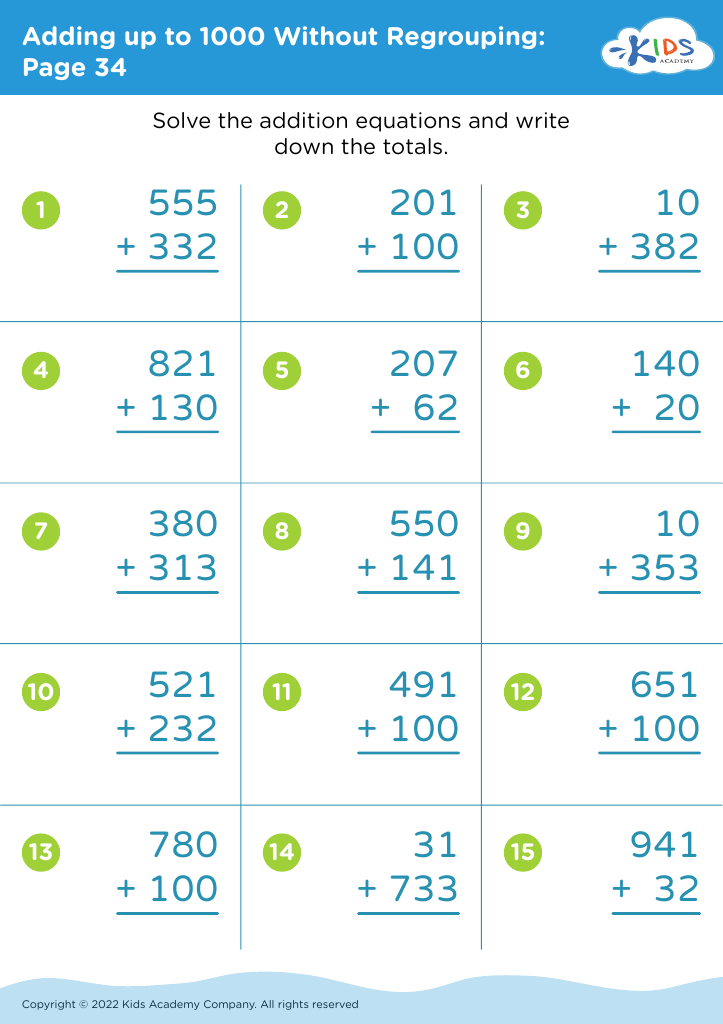Improve problem-solving Addition Worksheets for Ages 5-8
4 filtered results
-
From - To
Enhance your child's mathematical abilities with our "Improve Problem-Solving Addition Worksheets" designed for ages 5-8. These engaging worksheets not only bolster addition skills but also encourage critical thinking and problem-solving abilities. Each worksheet features fun scenarios that challenge young learners to apply addition in real-life contexts, fostering a deeper understanding of math concepts. Perfect for both classroom and home learning, these resources cater to different learning styles, ensuring every child thrives. Help your child gain confidence in their math skills while developing essential problem-solving strategies. Visit us today to download printable worksheets that make learning enjoyable!
Parents and teachers play a crucial role in developing a child's problem-solving skills, especially in math, like addition, for ages 5-8. Mastering problem-solving in this foundational math concept is vital, as it lays the groundwork for more complex mathematics they will encounter later in school.
Effective problem-solving skills enable children to learn how to think critically and logically. By engaging with addition-related problems, young learners not only grasp the mechanics of addition but also understand the importance of applying mathematical reasoning to everyday situations. Encouraging children to solve problems fosters a growth mindset, where they learn to view challenges as opportunities for learning rather than insurmountable obstacles.
Moreover, enhancing problem-solving skills improves confidence and resilience. When young learners successfully tackle addition problems, they gain a sense of accomplishment that motivates them to take on future challenges. This confidence extends beyond math, positively impacting their overall academic journey.
In summary, parents and teachers should prioritize improving problem-solving and addition skills, as they are key to developing critical thinking, building confidence, and laying a strong foundation for lifelong learning. A well-rounded approach to math early on pays dividends in both academic success and personal growth.





















